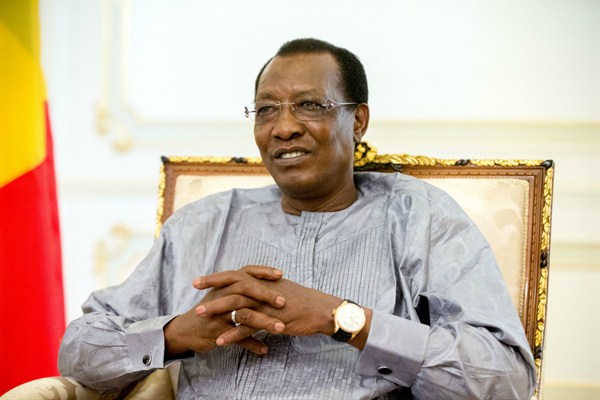A recent call for a vote of no confidence in Chad’s government over its management of the country’s oil wealth shows the level of anger among Chadians as they grapple with one of the most serious economic crises in years. Chad, which depends on oil for more than 70 percent of government revenue, has been brought to its knees by the dramatic fall in the world price of a barrel of oil since 2014. Having registered 6.9 percent annual growth in 2014, Chad’s economy is expected to contract by 1.1 percent this year, according to the International Monetary Fund, with just 1.7 percent growth forecast for 2017. Its budget deficit has increased from 6.2 percent of GDP in 2014 to 10.7 percent in 2015, which led to a staggering cut in government spending of 42.5 percent.
The call for a no-confidence vote, led by opposition politician Madtoingue Benelngar, from the National Union for Development and Renewal, or UNDR, comes hot on the heels of a series of protests sparked by the government’s austerity program to deal with the falling oil revenues. At the end of August, President Idriss Deby launched 16 measures, including cutting annual student grants completely—equivalent to about $600—and pay for civil servants by 50 percent. Led by Chad’s prominent trade union umbrella organization, known as UST, students and workers took to the streets. In October, magistrates then went on strike for two weeks after having tried unsuccessfully to overturn their salary reductions. On top of that, the government owes an estimated $461 million, at least, in unpaid invoices, and unhappy business leaders have appealed directly to the president.
“During the oil boom, economic entrepreneurs and politicians close to the presidency made a lot of money,” says Marielle Debos, an associate professor of political science at the University of Paris Ouest Nanterre. “People are aware of this and cannot accept the harsh austerity measures imposed by the government.”

